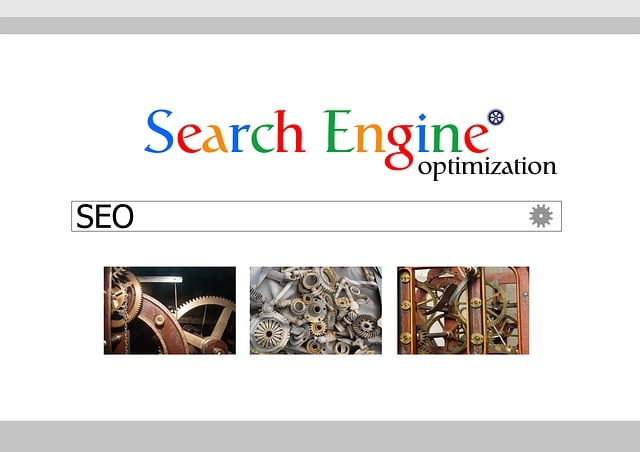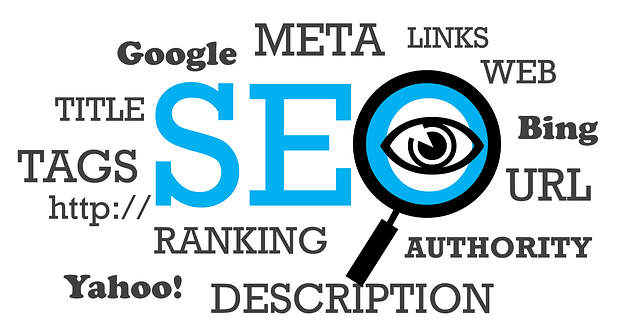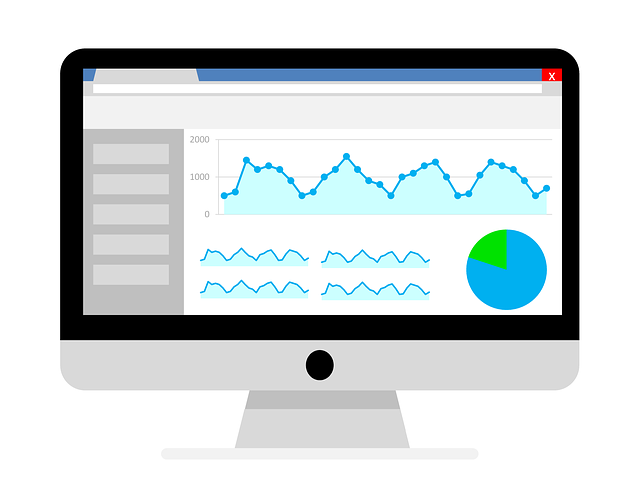Local SEO for small businesses is a strategic approach to boost online visibility and attract local customers through optimized listings on platforms like Google My Business, Yelp, Facebook, and industry-specific directories. By identifying relevant keywords, optimizing profiles with accurate NAP details, leveraging online directories, building high-quality backlinks, encouraging customer reviews, engaging on social media, and measuring success with analytics tools, small businesses can compete effectively in the digital era and drive targeted foot traffic to increase sales.
“Boosting local visibility is a game-changer for small businesses aiming to thrive in today’s competitive market. This comprehensive guide, ‘Local Listings Optimization for Small Businesses,’ delves into the strategies that drive successful local SEO. We explore how optimizing listings on platforms like Google My Business and online directories enhances business discovery, fosters local engagement, and ultimately increases foot traffic. From identifying target keywords to leveraging customer reviews and social media, this article equips small businesses with tools to master Local SEO for sustained growth.”
Understanding Local SEO for Small Businesses

For small businesses, Local SEO (Search Engine Optimization) is a powerful tool to enhance visibility and attract nearby customers. It’s about optimizing your online presence to rank higher in local search results, ensuring your business is easily found by those seeking products or services in your area. This strategy focuses on claiming and optimizing local listings across various platforms, including Google My Business, Yelp, Facebook, and industry-specific directories.
By consistently updating your business information, adding relevant keywords, and encouraging customer reviews, you can significantly improve your local search rankings. Local SEO allows small businesses to compete with larger corporations by tapping into a targeted audience. It’s about connecting with potential customers who are actively searching for what you offer in your specific location, ultimately driving more foot traffic and increasing sales.
The Impact of Local Listings on Business Visibility

Local listings play a pivotal role in enhancing the visibility and online presence of small businesses in their respective areas. In today’s digital era, when consumers often turn to search engines and mapping services for local services and products, optimizing these listings is an indispensable part of Local SEO for Small Businesses. A well-optimized local listing ensures that your business appears prominently in relevant searches, attracting potential customers who are actively looking for businesses like yours nearby.
By accurately claiming and verifying local listings on platforms such as Google My Business, Yelp, and industry-specific directories, small businesses can reap significant benefits. This includes increased organic reach, improved click-through rates from search results, and higher customer engagement. Moreover, positive reviews and ratings within these listings build trust and credibility, influencing potential patrons’ decisions to visit or patronize the business.
Identifying Relevant Keywords for Local Optimization

Identifying relevant keywords is a crucial step in local SEO for small businesses. Start by understanding your target audience and their search behaviors. Consider what terms customers might use when looking for your products or services locally, such as “best bakery near me” or “affordable plumbing in [your city].” Utilize tools like Google Keyword Planner or SEMrush to research and discover high-volume, low-competition keywords specific to your location. These tools can help you uncover valuable insights into what people are searching for in your area.
Once you’ve compiled a list of relevant keywords, analyze your competitors’ online presence. See which keywords they rank for and identify any gaps in their strategies. Incorporate these insights to optimize your business listings across local platforms like Google My Business, Yelp, and industry-specific directories. By targeting the right keywords, you can enhance your visibility in local search results, attract more relevant traffic, and ultimately drive more customers to your door.
Optimizing Google My Business Profile

Optimizing your Google My Business (GMB) profile is a powerful strategy for small businesses aiming to boost their local SEO. This free and essential tool acts as a local business directory, providing potential customers with crucial information about your company at exactly when and where they need it. By ensuring your GMB profile is complete and optimized with relevant keywords, you increase visibility in local search results, making it easier for nearby customers to discover your business.
Complete and accurate details are key. Update your profile with a consistent business name, address, phone number (NAP), and a compelling description that includes location-specific keywords related to your services. Upload high-quality photos, encourage customer reviews, and regularly post updates about promotions or events to keep your profile active and engaging. This not only improves your local SEO but also fosters trust and encourages potential patrons to choose your business over competitors.
Leveraging Online Directories and Business Listings

Leveraging online directories and business listings is a powerful strategy for small businesses looking to boost their Local SEO. By ensuring consistent and accurate information across various platforms, like Google My Business, Yelp, Bing Places, and industry-specific directories, businesses can enhance their visibility in local search results. This consistency signals to search engines that the business is legitimate and actively serving its local community.
Each online directory offers unique opportunities for engagement. For instance, Google My Business allows businesses to manage their online presence directly, including posting updates, responding to reviews, and adding photos. Yelp and other review sites provide a platform for customers to share their experiences, which can significantly influence potential patrons’ decisions. By actively participating in these directories, small businesses can drive more traffic to their websites and establish a stronger connection with their target audience through Local SEO.
Building High-Quality Backlinks for Local Reach

To boost the local reach of small businesses through Local SEO, building high-quality backlinks is a strategic must. These links from reputable, relevant websites act as digital endorsements, signaling to search engines that your business is trustworthy and deserves higher visibility in local search results. When creating these backlinks, focus on sites with strong local relevance, such as industry-specific directories, community forums, and local business associations.
In a competitive Local SEO landscape, quality trumps quantity every time. Rather than chasing a vast number of links from low-authority sources, invest your efforts in securing a few high-value backlinks from influential locales. This not only enhances your search rankings but also fosters authentic connections within your community, contributing to the overall growth and success of your small business.
Encouraging Customer Reviews and Testimonials

Encouraging customer reviews and testimonials is a powerful strategy for small businesses looking to optimize their local SEO. Positive feedback from satisfied customers can significantly boost online visibility, as search engines prioritize local listings with high user engagement and positive ratings. By prompting happy patrons to leave reviews on popular platforms like Google, Yelp, or Facebook, business owners can accumulate valuable social proof that strengthens their local search rankings.
Integrating review collection into marketing strategies is essential for building a solid online reputation. Displaying these testimonials on the business’s website creates trust and credibility with potential customers who often rely on peer-to-peer recommendations when making purchasing decisions. Moreover, active engagement with reviews, both positive and negative, demonstrates to the public that the business values customer feedback, fostering a sense of transparency and accountability.
Utilizing Social Media for Local Engagement

In today’s digital era, local SEO for small businesses isn’t just about optimizing your website—it involves engaging with your community on platforms where they’re already active. Social media acts as a powerful tool to build connections and foster brand loyalty locally. By leveraging platforms like Facebook, Instagram, and Twitter, businesses can create targeted content that resonates with their nearby audience. Regular posts about promotions, events, or even sharing customer testimonials can significantly enhance local visibility and encourage potential patrons to choose them over competitors.
Moreover, engaging in conversations and responding promptly to comments and messages demonstrates a commitment to excellent customer service. This not only builds trust but also encourages word-of-mouth marketing—a game-changer for small businesses aiming to establish themselves within their community. Utilizing hashtags specific to the area can further expand reach, making it easier for locals to discover and interact with your business online.
Measuring Success: Analyzing Local SEO Performance

Measuring success in Local SEO for small businesses is a crucial step to understanding what tactics are working and where improvements can be made. By analyzing key performance indicators (KPIs), business owners can gain valuable insights into their online visibility within their local market. Tools like Google Analytics, Search Console, and third-party local SEO platforms provide data on organic traffic from local search queries, click-through rates (CTR), conversion rates, and even customer reviews – all vital metrics to track.
Regularly reviewing this data allows business owners to identify trends, such as peak visiting times or popular search terms leading to website visits. It also helps in pinpointing areas of improvement, like addressing low CTRs on specific pages or encouraging more customers to leave online reviews. Such insights enable small businesses to refine their Local SEO strategies, ensuring they remain competitive and effectively reach their target audience within their geographic service area.
